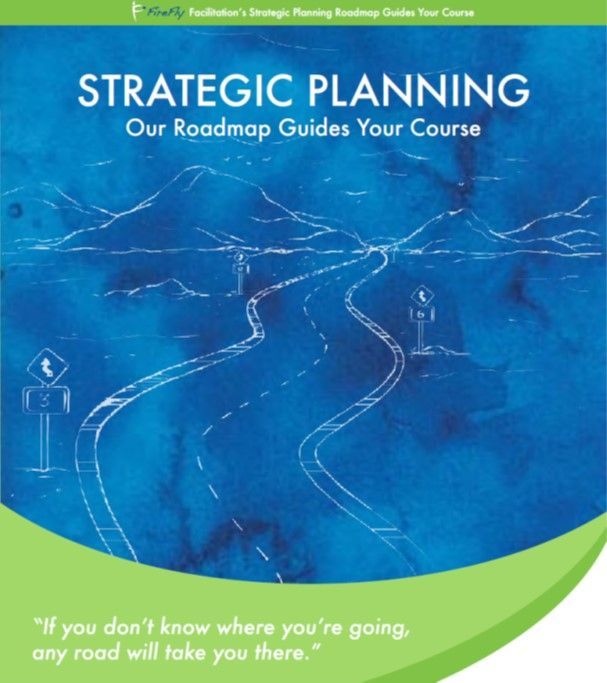Is your organization prepared for the new "hybrid workplace"?
"The 9-to-5 workday is dead.”
Brent Hyder, Salesforce Chief People Officer
In my last newsletter, I shared the concerning statistic reported by SHRM that more than 50% of employees intend to look for a new job this year.
With nearly 50% of the US population fully vaccinated, companies have begun urgently focusing on how to safely re-open their offices and manage their new "hybrid workplace" while ensuring they retain their best talent - whether they are on-site or remote.
I am an avid reader and synthesizer of content on key business topics on behalf of my clients.
In preparing this newsletter, I ran a Google search on "hybrid work"...and was amazed to find 903 million results and counting. Based on my research, I have identified these 5 key questions below...and our answers...that I hope will help you and your organization in your decision-making.
We are all in this together. I will continue to research this topic and encourage you to keep checking our blog page for the latest research highlights and my insights on this critical topic of hybrid work.
And if I can serve as a resource to you personally, please send me
a quick email,
and let's find 20 minutes to talk.
The 5 Key Questions Companies are Asking Now:
- When are offices opening up?
- How are hybrid schedules being determined?
- How will the hybrid work schedule impact office space?
- Will remote employee location impact compensation?
- What are companies requiring regarding vaccination?
Answer #1: Office Openings.
Many companies have been working in some form of hybrid work for a few months with employees occasionally going into the office if necessary. Large firms like the New York Times said the company planned to reopen its main offices in September. The insurer Prudential Financial expects most of its roughly 42,000 employees to work in the office half the time starting after Labor Day. So the consensus seems to be most offices will begin their 'new hybrid norm' in September once summer is over and children are back in class.
Answer #2: Hybrid Schedules.
The majority of companies are embracing a 3/2 hybrid workweek - three days in office, two days remote. The schedule is either being mandated at the corporate level or decided at the team level based on the nature of their work, while others are taking into account individual circumstances (e.g. length of commute, type of job, seniority). I also saw some extremes - either requiring employees to fully return in person or allowing people to work remotely forever. There is an interesting disparity in the key rationale for returning to the office. In one survey, 65% of executives wanted this for increased employee productivity...while employees find the key benefits of the office is collaborating with colleagues.
Answer #3: Work Space.
Adobe plans to allow employees to make reservations for desks when they will be working in the office. Prudential is not only reducing its physical footprint, it's also redesigning its office space floor-by-floor and repurposing most of it for meeting rooms (and adding more video technology), collaboration, and open space to promote interaction. They are also Expedia is trying to figure out how to have in-person meetings so that they don’t disadvantage those who aren’t in the room.
Answer #4: Compensation Impact.
According to WorldatWork's Geographic Pay Policies Study when asked about reducing an individual's cash compensation if they move to a lower-cost geographic area and work from home, just 4.3% said they would do so, while 56.5% said they would not, and the balance were uncertain or would decide on a case-by-case basis. Research conducted by Harvard Business School's remote work guru, Prithwiraj Choudhury, found the best geographic dividing line over pay is national vs by state.
Answer #5: Vaccination Requirements.
Littler’s COVID-19 Vaccine Survey Report finds employers still largely encouraging their employees to get vaccinated, with 84% providing information to employees about vaccinations and 48% offering paid time off to employees to receive the vaccine and/or recover from its side effects. Given the potential privacy and discrimination liabilities, employers are moving forward with caution: 41% of respondents say they will ask employees to voluntarily disclose, while 32% say they will not, and 27% are still unsure. The Executive Networks COVID-19 Virtual Roundtable discussion identified the most common approach was to educate, and encourage, but do not mandate.
Again, if you would like to discuss how to interpret and take action on these trends for your organization, I would be happy to give you 20 minutes of my time. Let's talk.
Kimberly
P.S. If you find this information of value, I invite you to share this newsletter with your colleagues.
Would you like more tips, tools and techniques to help your team to succeed?
Check out our fully updated website with free downloadable e-books and infographics!





